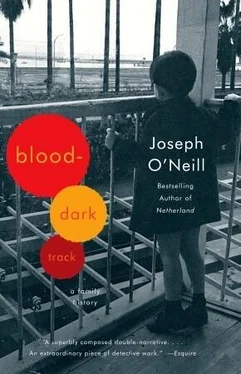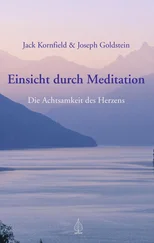The Panorama Apartments stood on the site of the hotel’s old swimming pool. When Oncle Pierre built the pool — a deep, cobalt box with an adjacent kidney-shaped paddling pool — it was the first swimming pool in central Mersin, and for the few years of the pool’s existence, in the late ’sixties and early ’seventies, the modern Toros Hotel saw its heyday. But Oncle Pierre noticed that the businessmen who used the hotel rarely went for a dip and figured that there might be more profitable uses for the land taken up by the pool. And so there emerged the small skyscraper that changed the skyline of Mersin to such effect that postcards depicting it were run off by the city’s tourist board, and beneath the apartment block there materialized the first upmarket shopping mall in Mersin. The ancestral land was still being put to profitable use.
I retreated from the balcony, which was suddenly too hot, into my grandmother’s apartment, which was suddenly too sultry. Over the years, everything had been tried to cool down that hellish space. Air-conditioning, electric fans, a dogsbody with a water-hose spraying the roof — nothing had worked. Nor was the stuffiness helped by the wintry fin de siècle furniture (specially made in Istanbul) that my grandparents had favoured since the ’fifties: heavy armchairs and sofas, and heavy wooden sideboards with a matching dining-table and chairs.
‘But isn’t it very hot?’ The waiter, Huseyin, arrived to collect the breakfast remains. I signalled my agreement with the pained wrinkling of the brow and the twisting of the hand that means, ‘How long must we put up with this torment?’
Huseyin had been working at the hotel for over fifteen years and had escaped the round of redundancies introduced by Mehmet Ali when he took over the hotel. During Oncle Pierre and Mamie Dakad’s time in charge, firings were very rare and the bulk of the staff would stay on for decades. Few quit. Employment at the hotel, which was fully unionized, was well paid and well insured, and the pension arrangements were hard to beat. Now, however, the future of the hotel was very much in doubt. Business was nothing like it used to be. New, competitive air-conditioned hotels had sprung up around the city and the Toros Hotel, although clean and well-situated, had become old-fashioned and uncomfortable.
I left my grandmother’s apartment and went down to the hotel saloon, on the first floor. The saloon had remained practically unchanged in the quarter century I’d known it. The bar still featured revolving stools bolted to the ground, a display of ageing bottles of liquor, an icebox packed with bottles of cherry juice, apricot juice, beer, and Pepsi. The massive gilt mirror hung, as ever, by the entrance; next to it was the flaking, gilt-framed eighteenth century painting of camels arriving at a waterfront; over there were the rugs scattered on the cool floor, and there the pile of antique cushions and armchairs. The ’sixties breakfast tables were present and correct, and the defunct fan hung from the ceiling of the television alcove, where lonely businessmen still killed off evenings in dense clouds of cigarette smoke.
I had an appointment later that morning with a man called Salvator Avigdor, who had worked at the Toros Hotel during the Second World War, and with some time to spare before my meeting, I drank a small glass of tea and looked at my notes. I had, by this time, spoken to a number of Mersin old-timers who had known my grandfather, and gathered together photographs and a very few written documents I’d found in a large manila envelope in my grandmother’s sideboard. I had not yet dug out the manuscript that, years previously, Phaedon and I encountered in the depot. The keys to the depot were missing and my mother was looking for them.
What I knew so far was that Joseph Dakak was born on Christmas day, 1899 — ‘In Capricorn,’ Amy said, ‘the business sign.’ His mother was Caro Raad. The Raads were an old family from the Syrian grande bourgeoisie , but the early death of Caro’s parents left her and her sisters désargentées , and consequently the Raad girls married men who were considerably older than them. Eugénie Raad married into the Kandelaft family, who belonged to the soyeux , silken, class of Lyon and lived in a huge medieval chateau. Caro made a humbler match with Basile Dakak. Basile worked as a transiteur des douanes — a customs agent of some kind — in Iskenderun, a port to the south-east of Mersin; but not much else was known about him or the Dakak family, who were Greek Catholics from Aleppo or, possibly, Damascus.
Basile and Caro initially lived in Iskenderun, where three children were born: a daughter, Radié, who was five years older than Joseph, who himself was five years older than Georges. In about 1910, shortly after the family had moved to Mersin, Basile Dakak died from tetanus contracted by opening a rusty-topped bottle of gazeuse ; he was perhaps fifty years old. The family was plunged into a financial crisis. Radié was taken by her mother to Istanbul to seek a favour from a cousin who was one of the Sultan’s ministers; they stayed at the Pera Palace, the luxurious hotel built to accommodate European train travellers, and were grandly received. More mundanely, Caro rented out rooms to des gens biens . Her house, a handsome two-storey limestone building, was not in Mersin’s upscale Greek quarter but in the Maronite quarter, not far from the Catholic church. The rental income only went so far, and Caro sold her jewels in order to pay for Joseph’s fees at boarding school in Aleppo. Papa loved her specially as a consequence, my mother said.
But the money from the sale of the jewels also ran out, and Joseph was forced to leave school at sixteen. It was the Great War, and my grandfather found work as a bookkeeper in Belemedik, a spot in the Taurus Mountains where Ottomans and Germans were building railroad tunnels. After Belemedik, where he picked up German, Joseph worked for a while as an interpreter for the Red Cross; it was unclear for how long and unclear, generally, what he’d done during perhaps the most mysterious time in Mersin’s history, the French occupation from late 1918 to January 1922, a time which I knew nothing about other than that it saw Radié and Georges’ departure from Mersin to France, and Caro’s death, in early 1921, of a brain haemorrhage suffered in a cinema. She was forty-two years old. By 1923, grandfather was left in Mersin without a family.
Joseph’s sense of abandonment was perhaps reflected in a document, dated 23 March 1923, that I’d found in my grandmother’s apartment. It was a manuscript transcription by Joseph of a poem by a French poet — Jacques [illegible] — called Renoncement , in which the speaker bade an emotional, self-pitying farewell to his departing lover. The poem was of doubtful literary merit and was on the face of it unlikely to have been inspired by Georgette Nader, who was only fourteen in 1923 and who, in her unbudging devotion to Joseph, was the opposite of the poem’s inaccessible, fleeting love object. And yet the fact remained that my grandmother had preserved the poem; and it was in the ’twenties, when she was still a teenager, that she began to carry a torch for Joseph Dakak. She loved his style and his authority, and he was drawn to this attractive and spirited young woman (ten years his junior) who had excelled at school. ‘ J’étais sérieuse, pas flirteuse ,’ my grandmother had once told me. ‘ Je n’étais pas tralala .’ Exactly how Joseph earned his living at this time was not certain — his children could only assume that he was engaged in commerce of some kind — but at any rate, he got by. He was a débrouillard , his niece Ginette had told me, a man who could make do and make things happen. A seemingly eternal romantic involvement began between Georgette and Joseph. It grew to be the talking point of Mersin, since Dakak refused to commit himself to marriage, even when he was well into his thirties and financially secure. He had two main sources of income. The property, which he rented) and initially called the Bellevue Hotel. The clientele consisted mainly of Turkish businessmen: in the two decades before the Second World War, the movement of foreigners into and around the Turkish Republic was strictly controlled. The second source of Joseph’s wealth was income derived from acting for a German company, or companies, building sewer systems in and around Mersin and other Turkish towns. It was this line of work, Oncle Pierre believed, that led Joseph Dakak to go on a business trip to Berlin in around 1934 — a trip about which the only thing known by the family was that it took place.
Читать дальше
Конец ознакомительного отрывка
Купить книгу












